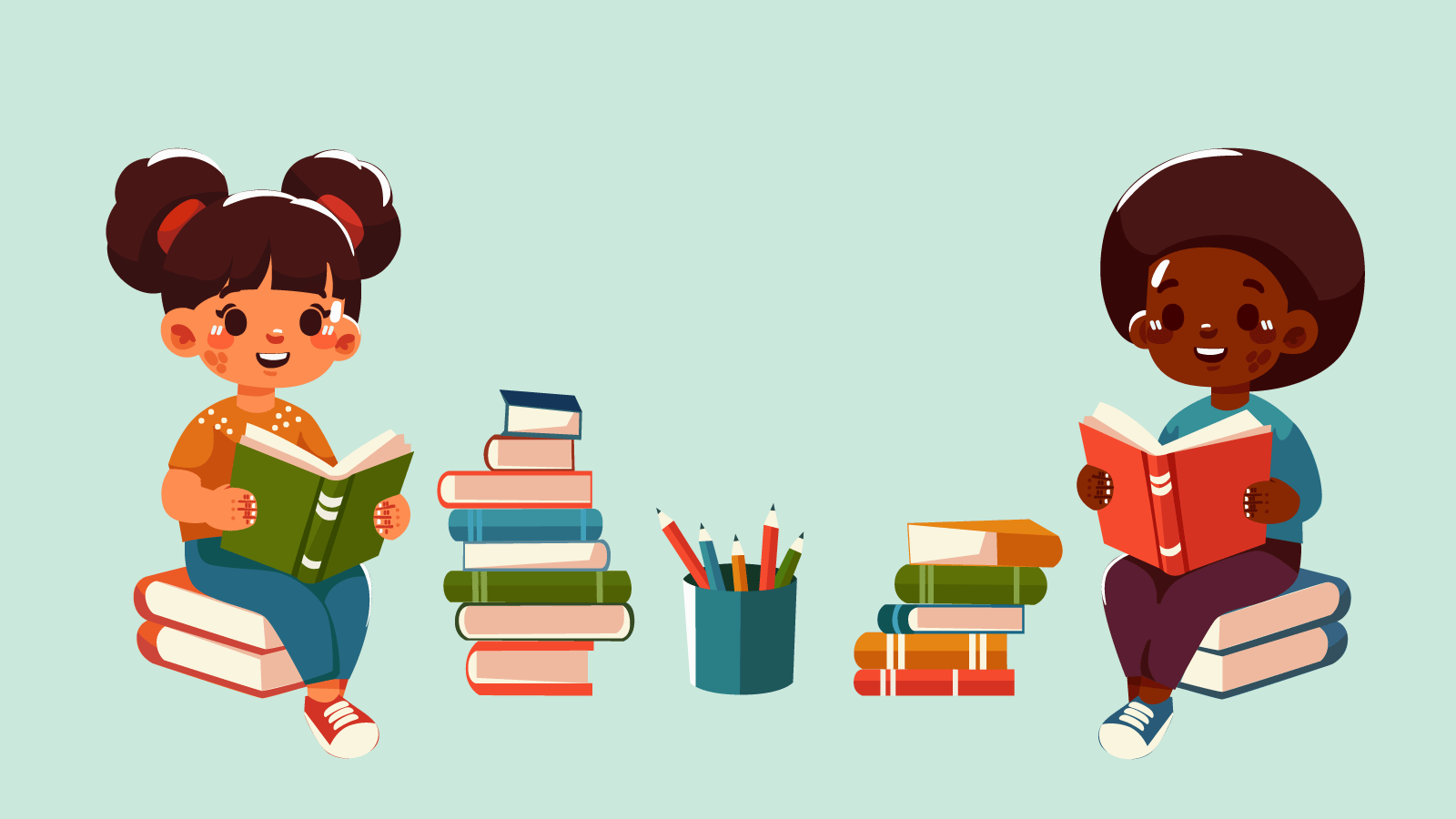Sentence construction Normal Reading Comprehension Worksheets for Ages 7-9
5 filtered results
-
From - To
Enhance your child's reading skills with our engaging Sentence Construction Worksheets tailored for ages 7 to 9! These thoughtfully designed materials focus on improving reading comprehension through interactive exercises that make learning enjoyable. Our worksheets encourage kids to practice sentence formation, understand syntax, and expand their vocabulary while mastering the fundamentals of written language. Ideal for both classroom and home use, these resources foster critical thinking and creativity as young learners connect words to create clear and coherent sentences. Empower your child's literacy journey today with our captivating worksheets that make sentence construction fun and educational!
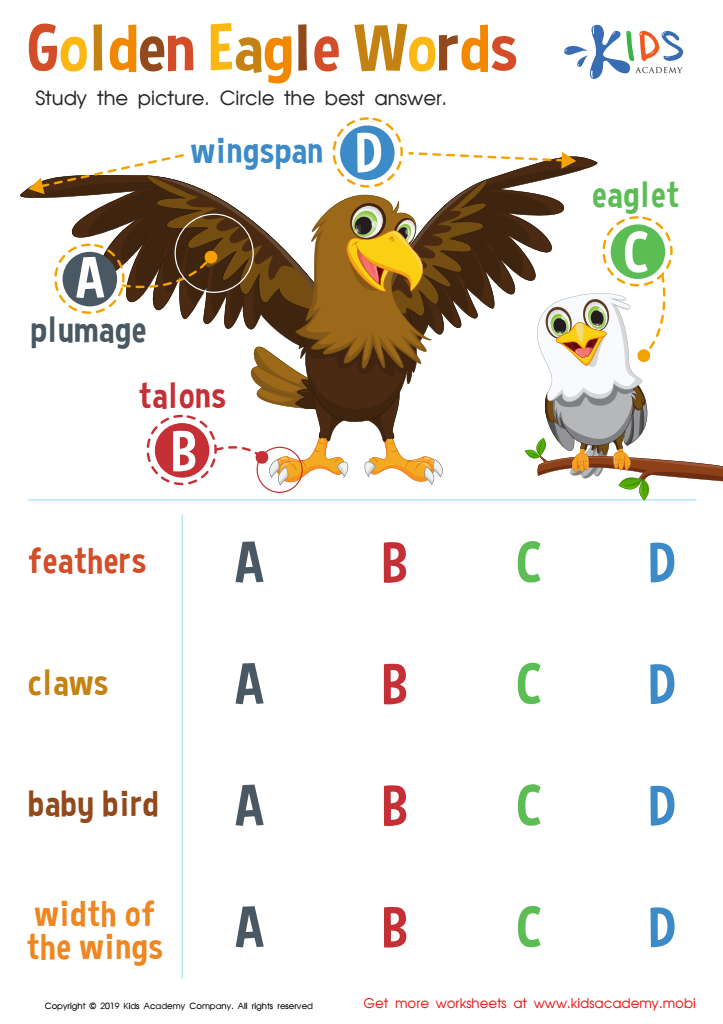

Golden Eagle Words Worksheet
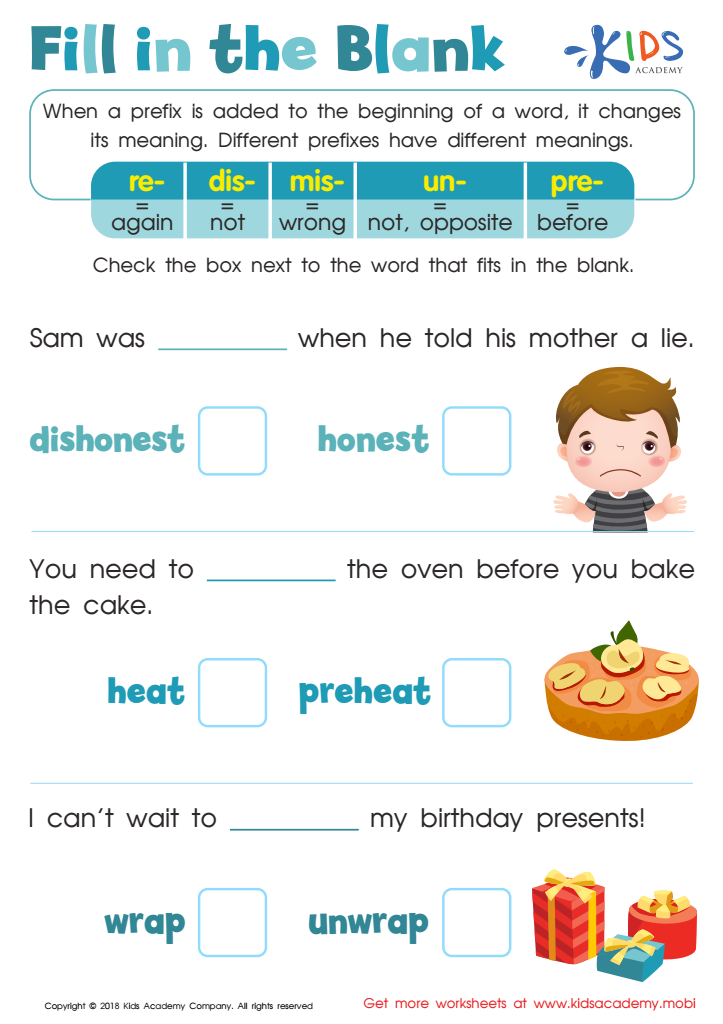

Reading: Fill in the Blank Worksheet


Adjectives Worksheet
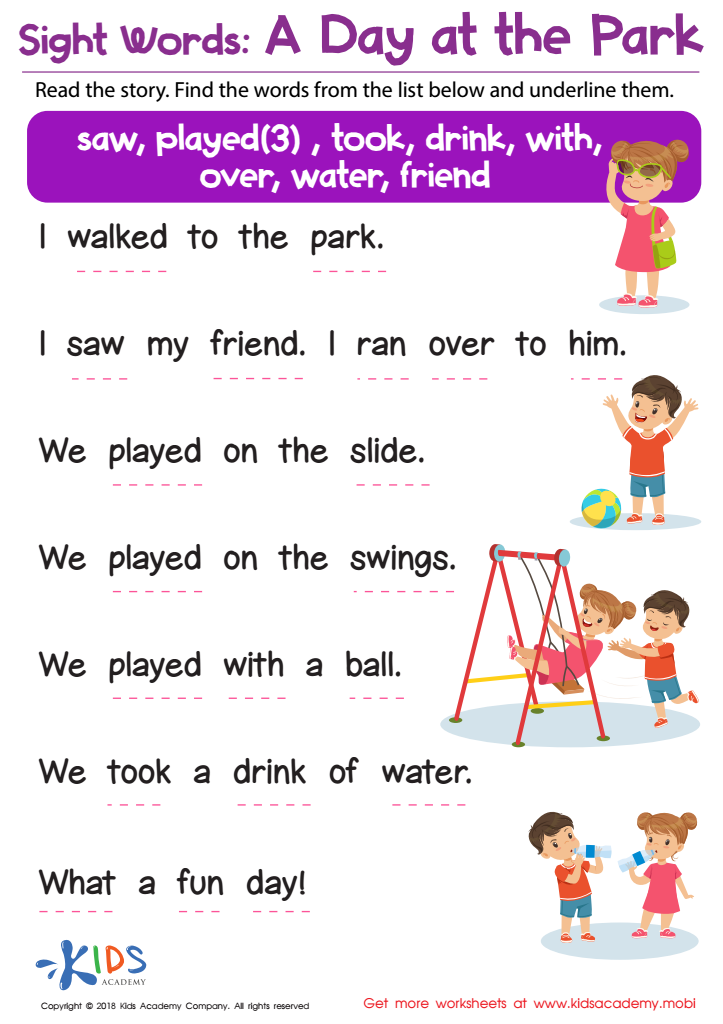

Sight Words: A Day at the Park Worksheet
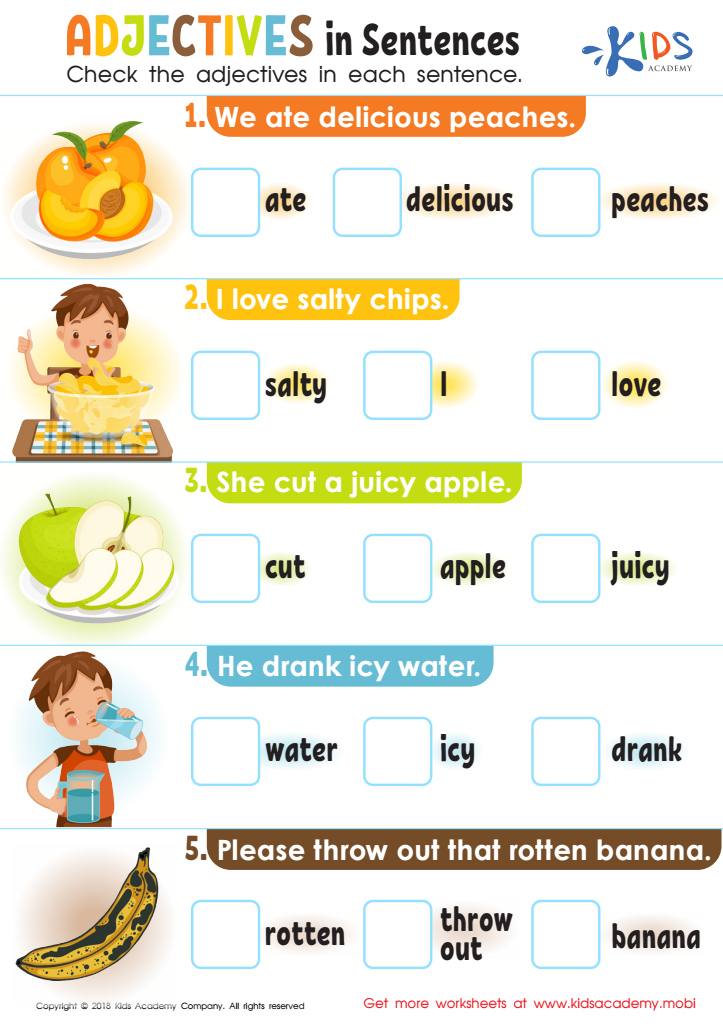

Adjectives in Sentences Worksheet
Parents and teachers should prioritize sentence construction and normal reading comprehension for children aged 7-9 because these skills are foundational to literacy and overall academic success. At this age, children are transitioning from learning to read to reading to learn. Proficient sentence construction helps them articulate thoughts clearly, enhancing both written and verbal communication.
Strong reading comprehension skills enable children to understand, analyze, and engage with texts independently. This is crucial not just for language arts, but for all subjects, as comprehension impacts a child’s ability to grasp complex concepts in science, math, and social studies. Moreover, good comprehension fosters a love for reading, encouraging lifelong learning and curiosity.
Additionally, teaching students effective sentence structures can improve their writing skills, enabling them to express ideas with precision and creativity. As children develop critical thinking abilities, they are better equipped to navigate challenges both academically and socially.
Ultimately, investing time and resources into nurturing these skills allows parents and teachers to significantly impact a child’s confidence and competence in language-related tasks, setting the groundwork for future educational endeavors and personal growth.
 Assign to My Students
Assign to My Students







